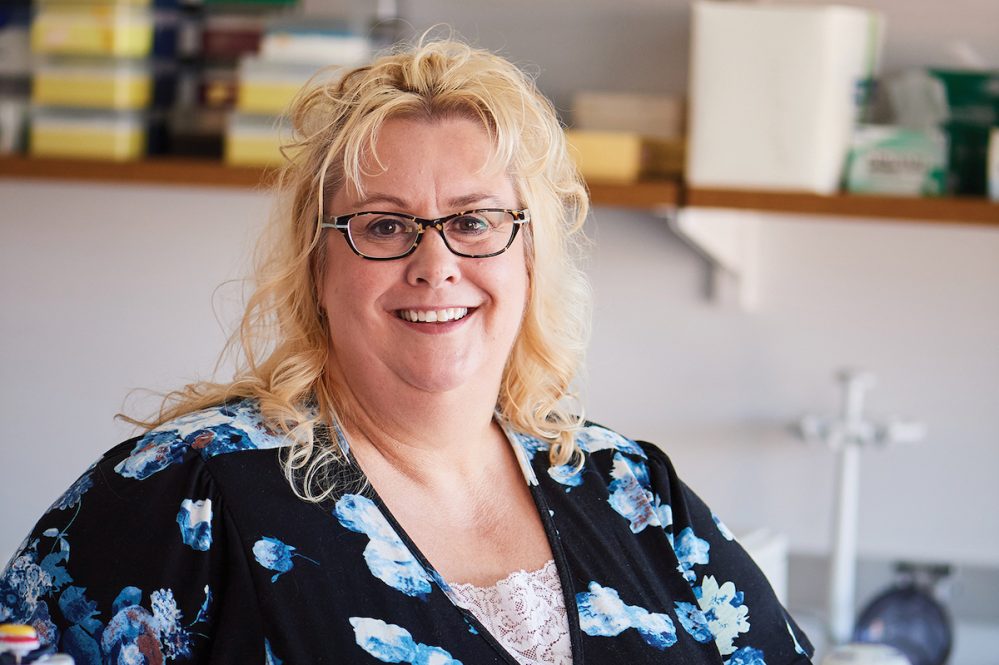Opera divas have nothing on Judy Brown ’98 MS, ’07 Ph.D. When she stands to talk, all eyes are upon her. She speaks with such passion for her subject and empathy for her listener, and so compellingly does she make her points, that anyone who hears her may suddenly find themselves fascinated by the ethical implications of an extra chromosome or variant gene.
That’s Judy Brown the instructor, Judy Brown the panel guest, Judy Brown the project director. But there’s another side of Brown, too. Her expertise and passion come with a self-effacing humility and quiet thoughtfulness that make her all the more effective as an instructor.
“I don’t think of myself as a teacher, rather as a learner alongside others, a facilitator of showing others how to learn and where to find information,” Brown says. “I dislike the term ‘lecture’ as it reminds me of being a child and being reprimanded by a parent.”
Brown’s parents were quite surprised when she decided to go for an undergraduate degree in science — they were under the impression she was going to be a novelist. But somehow the science bug bit. After trying out veterinary work (allergies nixed that), dentistry (she fainted at the first sight of blood), pharmacy (counting and sales contraindicated with her interests), she finally got a job in a cytology lab and found she was into it. Lab maintenance and the glass shards that stuck into her fingers did not deter her.
Shortly after college, Brown scored a job in the cytogenetics lab at the SUNY Upstate Medical Center (now University), and she found she had a thing for chromosomes. She accepted a teaching position in the Diagnostic Genetic Sciences (DGS) program in UConn’s School of Allied Health (now a department within UConn’s College of Agriculture, Health and Natural Resources) while pursuing her Ph.D., and ended up becoming the program director. She has created two graduate degrees at UConn (Health Care Genetics and the Genetic and Genomic Counseling Professional Science Masters), co-founded the UConn Chromosome Core, and most recently joined the School of Nursing in fall 2020.
“The School of Nursing has an innovative, quick response to education — it’s been a delight,” Brown says.
In response to the current social climate, Brown, a faculty member of the Institute for System Genomics, decided to offer a special-topics class this year — ISG 5095: Diversity and Inclusion in Genetics.
Editor’s note: Clarifying information about the former UConn School of Allied Health was added to the digital version of this article.



